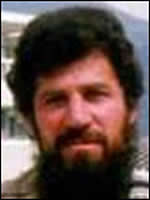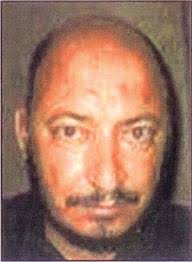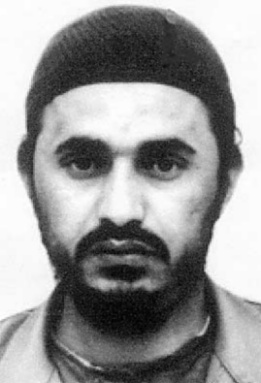Related Research Articles

Al-Qaeda is a pan-Islamist militant organization led by Sunni Jihadists who self-identify as a vanguard spearheading a global Islamist revolution to unite the Muslim world under a supra-national Islamic state known as the Caliphate. Its members are mostly composed of Arabs, but also include people from other ethnic groups. Al-Qaeda has mounted attacks on civilian, economic and military targets of the US and its allies; such as the 1998 US embassy bombings, the USS Cole bombing and the September 11 attacks. The organization is designated as a terrorist group by NATO, UN Security Council, the European Union, and various countries around the world.

Ansar al-Islam in Kurdistan, simply called Ansar al-Islam, is a Kurdish Islamist militant and separatist group. It was established in northern Iraq around the Kurdistan Region by Kurdish Islamists who were former Taliban and former Al-Qaeda volunteers, which were coming back from Afghanistan in 2001 after the Fall of Kabul. Its motive is to establish an Islamic state around the Kurdistan region and to protect Kurdish people from other armed insurgent groups. It imposed strict Sharia in villages it controlled around Byara near the Iranian border.
The Saddam–al-Qaeda conspiracy theory was based on false claims made by the United States government, alleging that a highly secretive relationship existed between Iraqi president Saddam Hussein and the Sunni pan-Islamist militant organization al-Qaeda between 1992 and 2003. The George W. Bush administration promoted it as a main rationale for invading Iraq in 2003.

Nashwan Abdulrazaq Abdulbaqi al-Tamir, better known as Abd al-Hadi al-Iraqi is an Iraqi member of Al-Qaeda who is now in United States custody at Guantanamo Bay detention camp in Cuba.

Abu Ayyub al-Masri, also known as Abu Hamza al-Muhajir, born Abdel Moneim Ezz El-Din Ali Al-Badawi, was the leader of Al-Qaeda in Iraq during the Iraqi insurgency, following the death of Abu Musab al-Zarqawi in June 2006. He was war minister of the Islamic State of Iraq from 2006 to 2010 and prime minister of the Islamic State of Iraq from 2009 to 2010. He was killed during a raid on his safehouse on 18 April 2010.
This article is a chronological listing of allegations of meetings between members of al-Qaeda and members of Saddam Hussein's government, as well as other information relevant to conspiracy theories involving Saddam Hussein and al-Qaeda.

Abu Omar al-Baghdadi, born Hamid Dawud Mohamed Khalil al-Zawi was the Emir of the Islamic militant umbrella organization Mujahideen Shura Council (MSC), and its successor, the Islamic State of Iraq (ISI), which fought against the forces of the U.S.-led Coalition forces during the Iraqi insurgency.

Abu Musab al-Zarqawi, born Ahmad Fadeel al-Nazal al-Khalayleh, was a Jordanian jihadist who ran a terrorist training camp in Afghanistan. He became known after going to Iraq and being responsible for a series of bombings, beheadings, and attacks during the Iraq War, reportedly "turning an insurgency against US troops" in Iraq "into a Shia–Sunni civil war". He was sometimes known by his supporters as the "Sheikh of the slaughterers".
Abu Ubaidah al-Banshiri was the nom de guerre of Ali Amin al-Rashidi, was a founding member of al-Qaeda and served as the groups first military commander. He was known within the group as the "most capable and popular leaders"

Abdul Sattar Abu Risha – Sheikh Abdul Sattar Eftikhan al-Rishawi الشيخ عبد الستار افتيخان الريشاوي – was a high-profile Iraqi tribal sheikh of the Abu-Risha tribe. He was the leader of an alliance of Iraqi Sunni Arab tribes that opposed al-Qaeda in Iraq.
Hassan Ghul, born Mustafa Hajji Muhammad Khan, was a Saudi-born Pakistani member of al-Qaeda who revealed the kunya of Osama bin Laden's messenger, which eventually led to Operation Neptune Spear and the death of Osama Bin Laden. Ghul was an ethnic Pashtun whose family was from Waziristan. He was designated by the Al-Qaida and Taliban Sanctions Committee of the Security Council in 2012.
There have been several videos released showing Al-Qaeda leader Ayman al-Zawahiri.
The 2008 Nineveh campaign was a series of offensives and counter-attacks between insurgent and Coalition forces for control of the Nineveh Governorate in northern Iraq in early-to-mid-2008. Some fighting also occurred in the neighboring Kirkuk Governorate.

The Islamic State of Iraq, was a Salafi jihadist militant organization that fought the forces of the U.S.-led coalition during the Iraqi insurgency. The organization aimed to overthrow the Iraqi federal government and establish an Islamic state in Iraq.

Abd al-Rahman Mustafa al-Qaduli, better known as Abu Ali al-Anbari, was the governor for territories held by the Islamic State of Iraq and the Levant (ISIL) in Syria. Considered the ISIL second-in-command, he was viewed as a potential successor of ISIL leader Abu Bakr al-Baghdadi.

Ahmed Hussein al-Shar’a, known by the nom de guerreAbu Mohammad al-Julani, is the commander-in-chief of the Syrian militant group Tahrir al-Sham.

Samir Hijazi, known as Abu Humam al-Shami or Faruq al-Suri, is a Syrian militant and soldier who was the military chief of al-Qaeda's Syrian affiliate al-Nusra Front. He became the head of the Guardians of Religion Organization in February 2018, though he was replaced by Khalid al-Aruri.
Khalid Mustafa Khalifa al-Aruri, known as Abu al-Qassam, was a Palestinian-Jordanian Islamic militant and a member of al-Qaeda who was the leader of the Guardians of Religion Organization.
The origins of the Islamic State group can be traced back to three main organizations. Earliest of these was the "Jamāʻat al-Tawḥīd wa-al-Jihād" organization, founded by the Jihadist leader Abu Mus'ab al-Zarqawi in Jordan in 1999. The other two predecessor organizations emerged during the Iraqi insurgency against the U.S. occupation forces. These included the "Jaish al-Ta'ifa al-Mansurah" group founded by Abu Omar al-Baghdadi in 2004 and the "Jaysh Ahl al-Sunnah wa’l-Jama’ah" group founded by Abu Bakr al-Baghdadi and his associates in the same year.
References
- ↑ Iraq MP found at al Qaeda meeting - U.S. military, Reuters , 2007-10-04, accessed on 2007-10-06